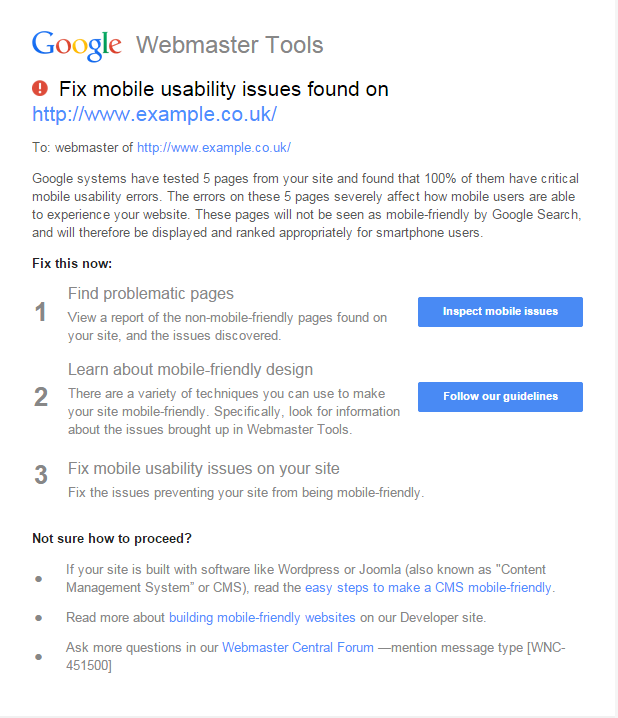Google's Warning to Non Mobile Friendly Websites
By Tomahawk on
All we seem to be reading about at the moment is the Google Mobile "Armageddon", the premise that on the 21 April if you are not mobile-friendly your website will be surreptitiously wiped off the face of search.
But it’s not quite all that dramatic. Let’s look at what is actually involved and whether you should be panicking just yet.
WHAT’S SO BIG ABOUT MOBILE?
We've been telling our tourism clients this for some time now: you must invest in a mobile-friendly (ideally responsive) website to succeed online. It’s no longer a “nice-to-have” - it’s a must-have.
- There are 1.08 billion smartphones in the world
- 50% of local search is done on a mobile device
- Nearly half of consumers say they won’t return to a website if it doesn’t load well on mobile
Last year eMarketer predicted that the majority of online travel researchers will be mobile by this year. There is an increasing amount of consumers using smartphones to research, book and share travel plans – so businesses simply cannot afford to miss out.
ENTER GOOGLE
The recent “Armageddon” hype has come from Google announcing that non-mobile friendly sites will be ranked lower in mobile search. They have been sending their own warning via Webmaster Tools.

What does this really mean?
Here are the facts:
- Non-mobile search (i.e. searches done on desktop and tablet) will not be affected by this change. So if the majority of your traffic is already coming from desktop search, you might not notice a sudden change.*
- It affects rankings on a page-by-page basis, not whole websites.
- Whether or not a webpage is mobile-friendly will be one of many other ranking factors used by Google. So this means it might not disappear altogether from mobile search, but slip down a few places. Google hasn’t really given an indication of how many places that could be.
- Google actually has already been penalising sites that offer a bad mobile experience for a couple of years now, and a few months ago started highlighting those that were mobile-friendly.
* Nevertheless, this is not an excuse: you really shouldn’t be missing out on all that mobile traffic.
THE BOTTOM LINE
If you are not mobile-ready you may see some drop in search rankings and a subsequent drop in traffic, but it may not necessarily be a dramatic one.
That doesn’t mean you shouldn’t be looking at going mobile – it is imperative you should be accessible across all devices or you risk losing out to your competitors.

Quick Tomahawk Case Study
We recently built a responsive website for an unnamed client (not the above example) whose site previously wasn't mobile-friendly. This is what happened to their mobile visits compared to the previous year:

This is a consistent result we see across our responsive websites one month after they have gone live.
Want more information? Get in touch.
Read more articles
10 SEO Hidden Secrets You Probably Haven't Thought Of
By Tomahawk |

Everyone knows the basics of SEO: use keywords, write great content, get backlinks, keep your site speedy. But what about the less obvious stuff? Those subtle signals that can give your website a quiet nudge up the rankings while...
New Ways Travellers Plan & Book: From AI to Social Search
By Tomahawk |
Definition of a Search Engine
As AI and social media has evolved, “search engine” no longer just means Google. The definition of a search engine is now about how travellers find trust, inspiration, and the confidence to...

